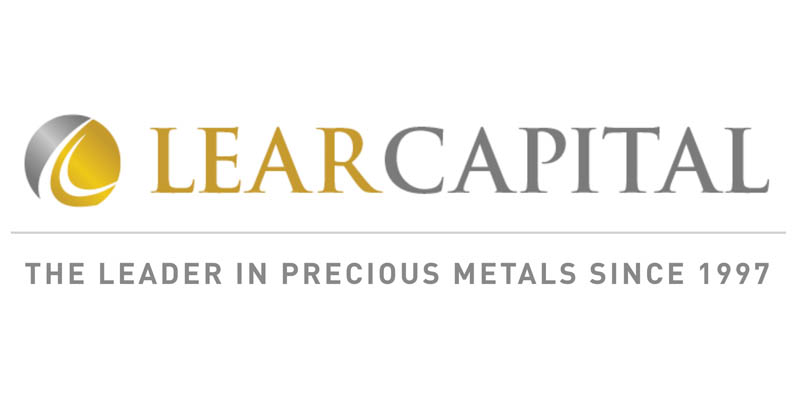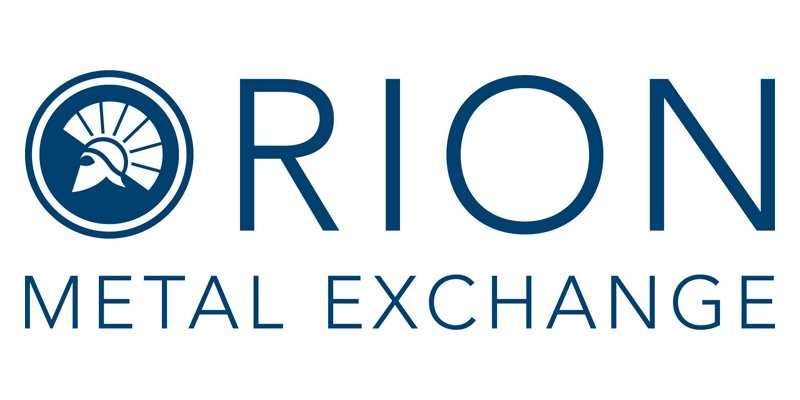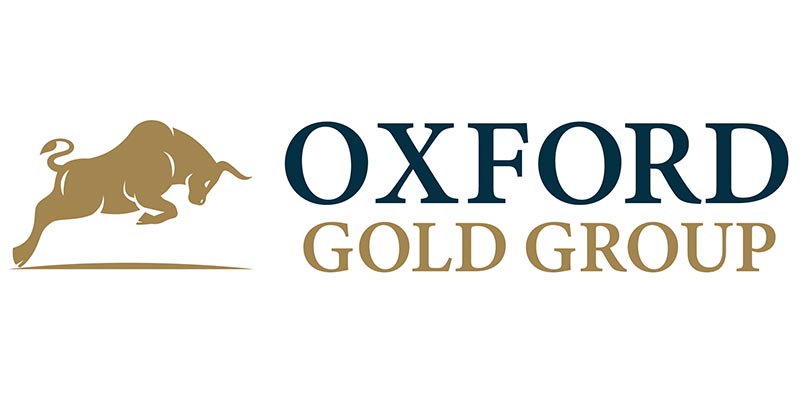Investing in gold can help maintain the value of your investment portfolio as a hedge against economic pressures like inflation or economic uncertainty. Luckily, there are many ways one can invest in gold with varying levels of complexity.
Whatever method you choose to invest in gold, consult a tax professional or a financial advisor to help understand your tax implications and how your gold investments might fluctuate in response to market conditions.
Great Service
Lear Capital
- Fees waived with minimum IRA
- Personalized customer service and education
1. Buy Gold Coins, Bars, or Bullion
You can buy physical gold from various gold and precious metals brokers in the form of coins, bars and bullion. While owning actual gold sounds thrilling, you must properly store and insure these physical assets. You can purchase gold through an online dealer, local dealer, collector, or pawn shop.
However, the spot price of gold fluctuates daily, and most gold dealers will charge a premium in addition to the spot price. For example, depending on the year, a one-ounce American Gold Eagle coin is the most common form of gold bullion, and it retails for at least $2,100 in June 2023. In-demand collectible coins can also get pricey. Compare offers from multiple brokers to see if you can reduce costs and increase your profits when you sell the gold.
Pro Tip: Make sure to compare your purchase price to the spot price prior to purchasing to determine the premium the dealer is charging and that it is reasonable.
2. Invest in a Gold IRA
A great way to diversify your retirement portfolio is to open a gold IRA, which holds physical gold as an investment instead of traditional stocks and bonds. You’ll need a broker to buy IRS-approved gold and a custodian to create and manage the account. The custodian will also store your physical gold assets in an IRS-approved facility. Many gold brokers have Gold IRA programs with specialists ready to assist in setting up this self-directed IRA and initiating a gold IRA rollover.
You can buy more gold to add to the IRA, but you are required to take minimum distributions from a Gold IRA once you turn 73 years old.
Pro Tip: Gold IRAs are best for long-term holds. You could face penalties if you sell your investments before age 59 1/2.
3. Buy Gold Exchange Traded Receipts (ETR)
Another way to own physical gold is by investing in Gold ETRs from the Canadian Gold Reserves Program. You can trade Gold ETRs on the Toronto Stock Exchange (TSX) through several U.S. brokerages in Canadian (MNT) and U.S. (MNT.U) dollars. The gold receipts are proof you own physical gold bullion held at the Royal Canadian Mint. You pay a monthly fee equal to an annual rate of 0.35%. The purity of the gold an ETR represents is guaranteed to be at least 99.9%.
You can redeem your ETRs for physical gold bullion or cash once a month, and the minimum redemption is 10,000 ETRs. However, there’s no need to take possession of the gold with ETRs. When you’re ready, you can sell your certificates on the Toronto Stock Exchange.
Pro Tip: Gold ETRs are best for mid to long term. As an alternative way to hold physical gold without having to take possession.
4. Invest in Gold Mining Stocks
Perhaps the most straightforward gold investment option is to buy stock in a gold mining company. In this instance, you’re buying into a gold mining or processing operation rather than gold itself. Gold stocks can be a great way to take advantage of rising gold demand—especially if the price of gold keeps rising—but you must practice due diligence when selecting the companies you buy stocks from.
When considering profitable gold mining companies, buy into financially stable ventures with contracts for future mining projects and low overhead. You can also look into stock sold by companies that process gold, which may have less potential for volatility. The performance of gold stocks usually follows gold prices, but stocks can regress while gold prices climb in times when the economy falters
Pro Tip: Gold stocks are best for mid-term investment goals when you think the price of gold is going to move significantly up over a defined period.
5. Buy Gold ETFs
An exchange-traded fund, commonly known as an ETF, is a basket of stocks sold on the stock exchange throughout the day. Some gold ETFs track the price of gold, while others might invest in gold mining companies. Many Gold ETFs hold derivatives that are meant to track the price of gold but are not backed by any physical gold.
You can buy gold ETFs through your brokerage account. When comparing which gold ETFs to buy, consider their underlying assets, past fund performance, expense ratio, and liquidity. Ryan Sullivan, investment advisor at Off The Beaten Path Financial recommends an ETF database resource like VettaFi.
Pro Tip: Gold ETFs offer one of the most liquid ways to hold gold as they are traded daily on the stock exchange and can be easily bought or sold.
6. Invest in Gold Mutual Funds
Gold mutual funds may invest in any mixture of physical gold assets, precious metals processing stocks, other precious metals or gems, and domestic and foreign gold mining company stocks. Some gold funds hold almost all physical gold and effectively track gold prices. Others focus on emerging gold markets and can be lucrative over time. You can also choose funds that hold a percentage of investments in diamonds, silver, and other precious metals and minerals.
Like ETFs, you must research your options to ensure you choose one that meets your objectives. Look at the mutual fund’s past performance compared to the overall market. Buying shares in a gold fund can expose your portfolio to the benefits of investing in gold—but be warned: they generally come with a decent amount of fees, such as upfront fees, selling fees, and ongoing fees.
Pro Tip: Gold funds are best for those looking for active management of their precious metals investment.
7. Use Futures
When you invest in gold futures, you enter into an agreement to buy or sell a security for a set price on a certain date, regardless of the current market conditions. More specifically, as the buyer, you agree to pay for and receive a set amount of gold at a future price and date. In turn, the seller has to give you that said amount of gold at that pre-determined time.
Futures do not have management fees—though you will have to pay short- or long-term capital gains depending on how long you hold the asset. They are fairly complex financial derivatives and are not usually a good choice for the everyday investor. Because they’re commonly held for shorter periods of time, futures are best for traders rather than long-term investors.
Pro Tip: Gold futures are best used in conjunction with other investment types. For people looking to trade on short time intervals, futures are a great option..
8. Buy Gold ETNs
An ETN is an exchange-traded note, and this instrument combines some aspects of ETFs with bond securities. Gold ETNs may track a gold index or may move opposite of the value of gold, which is useful for the contrarian investor. Like buying non-interest-bearing bonds, a bank issues Gold ETNs with a maturity date. When the ETN matures, the bank pays the investor back with a profit depending on gold futures. With great risk comes great reward, and Gold ETNs can pay a handsome return. However, you also can lose your entire investment.
Pro Tip: Gold ETNS are best for short-term trading, shorting the gold market or those who have a high tolerance for risk and the funds to back it up.

Bottom Line: Invest in Gold Wisely
There are many ways to invest in gold, whether you want a hedge against the economy, a way to grow your retirement portfolio, or a chance to capitalize on a short-term payoff. Regardless of how you invest in gold, weigh these decisions heavily and consult a financial advisor to ensure your gold investment method complements your financial goals.
* This article is not investment advice and the information within is for general education only. Neither the author nor the publisher assumes any liability or responsibility for investments the reader chooses or the performance of investments. The facts may change depending on business entities, economic influences or other factors.




